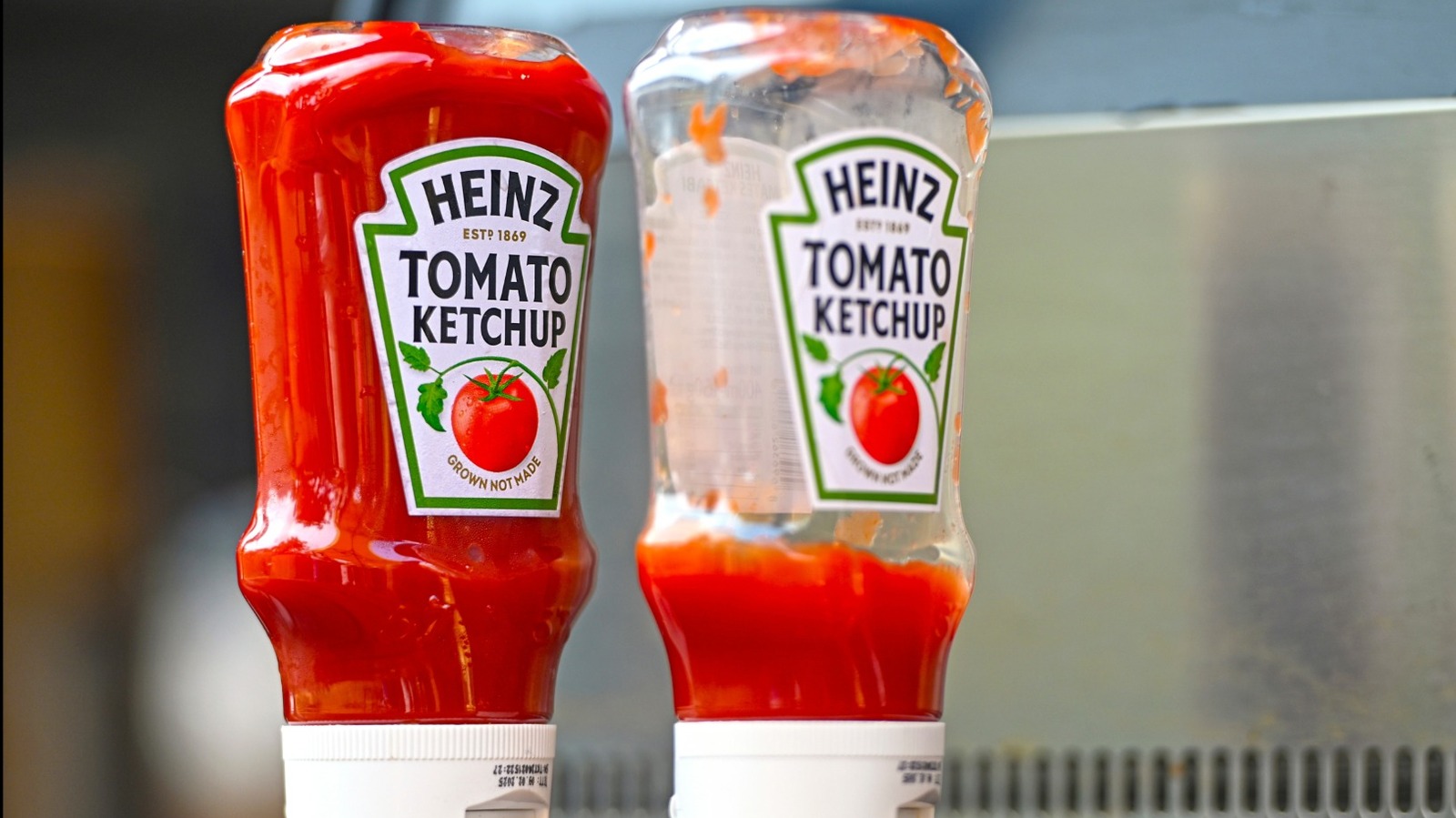
"Heinz ketchup, for example, is made of tomato concentrate from red ripe tomatoes, distilled white vinegar, salt, natural flavoring, stevia leaf extract, and onion powder. As you can see, there are no additional preservatives in this list. This last part is important, because while the acidity in ketchup makes it "shelf stable" that essentially just means that ketchup can be stored at room temperature and remain safe to ingest (for about 30 days)."
"Additionally, sometimes, the flavor isn't different at all but the texture changes to the point that it can seem like it is. It should be stated again that because of the acidity in ketchup, you can store it at room temperature, but there's a reason why the back of bottles such as Heinz say "For best results, refrigerate after opening.""
Ketchup is typically made from tomato concentrate or paste, vinegar, a sweetener, and salt, with brands adding unique flavorings. Many commercial ketchups, such as Heinz, contain no additional preservatives, relying on acidity to be shelf-stable and safe at room temperature for about 30 days. Once opened, exposure to air causes ingredients to begin breaking down. Storing opened ketchup in the pantry can lead to separation, possible fermentation, muted freshness, or textural changes that alter perceived flavor. Refrigeration slows ingredient breakdown and helps preserve intended taste and texture, which is why bottles advise refrigerating after opening.
Read at Tasting Table
Unable to calculate read time
Collection
[
|
...
]